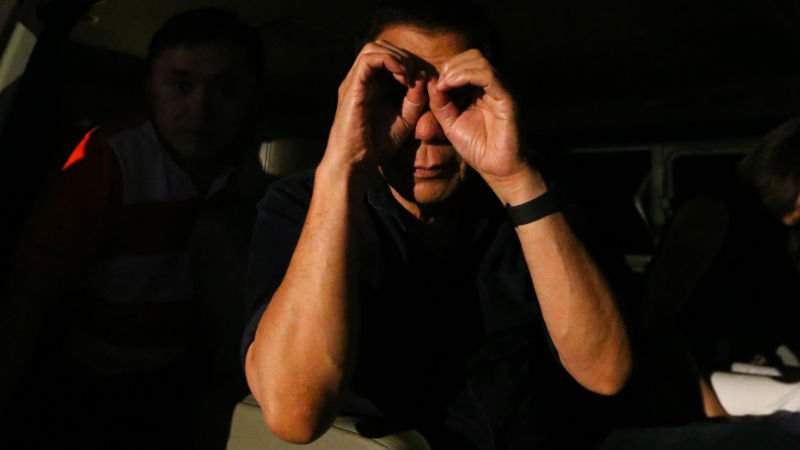Death is coming
THE GLOVE is off the iron fist.
The presumptive president-elect, Davao City Mayor Rodrigo Duterte, said on Monday he wants to reimpose the death penalty, and will campaign to have Congress pass it at the soonest possible time. “I need it to combat crime and to deter it,” Duterte said, referring to the most specific of his campaign promises. He also said he preferred that death sentences be carried out by hanging. “What I will do is urge Congress to restore death penalty by hanging.”
Article continues after this advertisementWe do not know whether Duterte is serious about his second statement, or is only adding that extra macabre touch to make an unforgettable impression. (We note his explanation, also at the Monday news conference, for his use of a joke about false teeth; he said it was to make government workers remember his admonition to render service with a smile.)
But we are in no doubt that the candidate who said he will solve or (a belated variation) suppress crime “in three to six months” is dead serious about his first statement.
To be sure, it seems to be a strategic legislative feint at this point. Even if, assuming for the sake of argument, the law reimposing capital punishment is passed in both chambers of Congress, within the first week of the new session, we cannot expect any final judgment from the Supreme Court on any new capital case within three or six months. That is simply not possible. To meet his self-imposed deadline, Duterte must rely on other methods.
Article continues after this advertisementHe has not been shy about what these other methods are. He has often said he will kill criminals. On Monday, he said he will arm barangay-level officials, like the Civilian Home Defense Forces of old. And: “If you resist, show violent resistance, my order to police [is] to shoot to kill. Shoot to kill for organized crime. You heard that? Shoot to kill for every organized crime.”
Even without a new law imposing the death penalty again, then, we should expect a spike in state violence as soon as Duterte takes his oath as the first president from Mindanao. (This can-do attitude assumes a can-know aptitude that, at the very least, Duterte and his men can distinguish the guilty from the innocent.)
Why the campaign for capital punishment then? In part, it may be because Duterte is a lawyer who seeks to ground his most outrageous pronouncements in legal provisions, and because it will serve his long-term plan, to reshape the political order in his image as an unquestioned source of discipline and punishment.
Will he find enough members of both chambers of Congress to vote for the new law?
The new measure will have to meet the Constitution’s strict requirements, that the imposition must be for “compelling reasons involving heinous crimes,” and will have to undo the effects of Republic Act No. 9346, which decreed, very simply, that the “imposition of the penalty of death is hereby prohibited.”
It is quite possible that the new president will have popular backing for the death penalty. The 38 percent of the electorate who chose him as the country’s next president must have known that Duterte wanted the return of capital punishment—and voted for it. This fact may be enough to force a substantial number of lawmakers to vote for the new measure. But the Duterte campaign’s subtle and savvy use of social media will likely drive more supporters, and more lawmakers, into the fold.
Nevertheless, they will be wrong. The problem with the death penalty is that there is no provision for error; if an innocent person is killed, he will stay dead even if innocence is belatedly proven. And our experience in the Philippines is eerily similar to that of other countries: More often than not, those who are poor and cannot afford adequate legal services end up on death row. The problem with the death penalty, then, is that there is no provision for systemic error. Above all, scientific studies (and anecdotal evidence) have shown that the death penalty is not an effective deterrent. It creates the illusion of a solution, but it does not in fact solve anything.
On the death penalty issue, the battle lines are drawn.

















